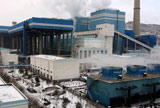Xi's meeting with Obama 'eases tensions'
By AN BAIJIE (China Daily) Updated: 2016-04-04 06:5890-minute discussion between leaders has diffused difficulties arising from issues related to South China Sea, foreign minister says
President Xi Jinping's meeting with US President Barack Obama has helped to alleviate tensions at a time when some countries have been playing up the South China Sea issue, Foreign Minister Wang Yi said.
The meeting, which took place on Thursday on the sidelines of the Nuclear Security Summit in Washington, was closely watched by the international community because many countries are pessimistic about the current state of Sino-US ties, he said.
"The Americans have said that they will not take sides (in the South China Sea issue), so it should not be a problem for the China-US relationship," Wang said.
The relationship should not be affected by historical problems between China and some US allies, and the positive dialogue between the two leaders has reassured the international community, he added.
During the 90-minute meeting, Xi and Obama discussed a range of issues, including economic policies, cooperation on nuclear security, maritime issues and the stability of the Korean Peninsula. The two leaders agreed to deepen cooperation and manage differences of opinion to expand common interests. It was the only bilateral meeting arranged by Obama's team during the summit.
Xi acknowledged that China and the US have disputes and differing views on some subjects, and said both sides should respect each other's concerns and seek solutions through dialogue.
Wang said: "We are confident about the steady development of the China-US relationship this year, and that will continue smoothly into the next term (when a new president is elected in the US)."
Climate change was once a stumbling block for Sino-US relations, but the two countries are now working together to bring the Paris Agreement on climate change issues into force as soon as possible. The two countries have also boosted cooperation on cybersecurity issues, he said.
On Thursday, China and the US, two of the world's leading nuclear powers, issued a joint statement about cooperation on nuclear security. The two countries jointly built the Center of Excellence on Nuclear Security in Beijing, the largest of its kind in the Asia-Pacific region, which opened in March.
Chen Kai, secretary-general of the China Arms Control and Disarmament Association, said the statement was very "inspiring" for maintaining global nuclear security, and would help the international community reach greater consensus on improving the handling of nuclear terrorism.
Foreign Minister Wang said Xi's attendance at the summit indicated that China attaches great importance to nuclear security and reflected China's willingness to promote global security governance.
During the summit, Xi spoke about ways of strengthening the international nuclear security system, including the strengthening of political commitment, national responsibility, international cooperation and the culture of nuclear security.
Ahead of the summit, Xi paid a state visit to the Czech Republic from Monday to Wednesday. The three-day trip was the first time that a Chinese president had visited the Czech Republic, or its predecessor Czechoslovakia, since the People's Republic of China was founded in 1949.
The two countries have agreed to elevate their bilateral relations to the level of a "strategic partnership", which Wang said was the most significant political achievement of Xi's visit to the country.
The historic visit will be seen as "a milestone" in Sino-Czech relations, and it will give greater impetus to China-European cooperation, he said.
- President Xi's proposals show resolve in nuclear security: experts
- Xi's visit highlights China's commitment to expanding cooperation, safeguarding nuclear security
- Cartoon commentary, President Xi attends nuclear security summit①: Xi-Obama meeting boosts Sino-US relations
- Xi urges strict supervision, prompt response to counter nuclear terrorism
- Xi stresses dialogue, cooperation in dispute settlement
- President Xi concludes US trip after attending NSS
- Xi upbeat about US relations
- Full text of President Xi Jinping's speech at the Fourth Nuclear Security Summit
- Xi calls for boosting nuclear security
- Activists want dog festival taken off the menu
- 'Exotic names' will soon vanish
- Chinese 'parachute kids' flock to US schools
- Chinese writer wins top prize for authors of children's books
- Li: Tax reform to boost vitality of real economy
- Once-endangered pony makes comeback
- Xi's meeting with Obama 'eases tensions'
- Signs in Chinese would help France attract more visitors
- Bookshop worms way into community
- Chinese eye eco-burials as graveyards fill up








